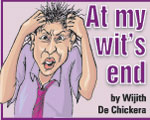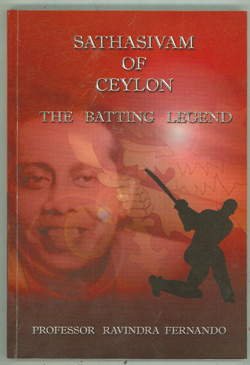Don’t read these books – those could be dangerous
View(s):Remember when life was idyllic? Not in the sense of plain bone idle or idiotically silly for want of work to do. But when all its moments were saturated with an essence than transcended the mundane. No, don’t stop reading because you don’t like big words! Please. There is a point to all of this. Which I will make sooner than it takes to boil water for a nice strong cuppa of char. And I hope to make it in words of one syllable (well, three at most).

One’s mind goes back to your favourite Sunday columnist’s schooldays, when life was about books and sports and education in the classroom as well as out on the playing fields; be they college quadrangles or the street where you lived. My own life was most about books. I think I am a better man for it now – if something of a nerd… or geek, to use the Greek for it which is the common epithet today.
But in the good old days (which is to say: when we were not good, not old, and not up to mischief by day alone) books were all we had. Of course there was TV: but it was mostly Big Valley, Blake’s 7, Flaxton Boys, Falcon Crest, and Crown Court in black and white. Books were the bread of life… from Biggles and Billy Bunter to the Bible, Bhagavadgita, and Encyclopaedia Britannica. Bliss it was that dawn to be alive – to be young was very heaven!
Until Tim Berners-Lee said Let there be more light! And Lo, there was the Internet. No doubt Al Gore and others of his Information Superhighway ilk are good men if not great, but they robbed Generation X, Generation Y/New Boomers, and Generation Z/New Silent Generation of the “joys of lex”. Unless you’re well read, you won’t get that last one. It was a play on the “joys of sex” by Dr. Alex Comfort. And it is very painful indeed to have to explain one’s puns to one’s Philistine readers. Not you, dear, never you!
Lawrence (D. H.), with whom this writer shares a birthday, once wrote rather wistfully: “If only we could have two lives: the first in which to make one’s mistakes, which seem as if they have to be made; and the second in which to profit by them.” I’d add to his adage this thought: “To read again all the books that we read… and the ones we didn’t.” Sri Lankan resident alien the late Sir Arthur C. Clarke surmised that his generation was probably the last which was able to take a decent stab at reading all the books ever published. But life is short, art long, opportunity fleeting, experience deceptive, judgment difficult. That glory of being able to encompass all words ever penned and printed is long past… and nostalgia (to say nothing of my nocturnal reading habit) isn’t what it used to be – not with Kindle and e-Reader, it isn’t.
(T. E.) Lawrence of Arabia – that inimitable man of action, much admired for his acumen as a desert commando tactician – paid homage to the power of the written word when he declared that “the printing press is the greatest weapon in the armoury of the modern commander”. A realist, he was careful to add: “Nine-tenths of tactics are certain, and taught in books; but the irrational tenth is like the kingfisher flashing across the pool, and that is the test of generals.” So the wise man reads both books and life, as Lin Yutang encouraged us to do. Yes, dears, women and children too can and must do it!
Only time will tell whether – and if at all, how seriously – our men of action much admired for their military prowess will take the pressing matter of books and men. At present, Sri Lanka’s defence budgetary allocation is a potent 215 billion rupees (4% of GDP) while estimated state spend on higher education is a comparatively paltry 43 billion rupees (less than 1% of GDP). Ergo, the academics’ clarion for the government to return to the glory days when at least 6% of the national budget is invested in education.
In the meantime, there is the Colombo Book Fair (18-26 September, BMICH and adjuncts). In the run-up to the manned mission to the moon, many astronauts (Borman, Collins, et al.) – upon seeing our big blue beautiful planet from space – expressed the opinion that if only Earth’s politicians could see this cradle of life from out there, there would be less war, death, crime, corruption and grief all round. There may be some value in prompting present-day politicos in an island nation that shall remain nameless to spend an entire afternoon at the book stall. It could remind them (and us all) that there’s more to politics than the pursuit of power, and more to life than the making of money.
Follow @timesonlinelk
comments powered by Disqus


























